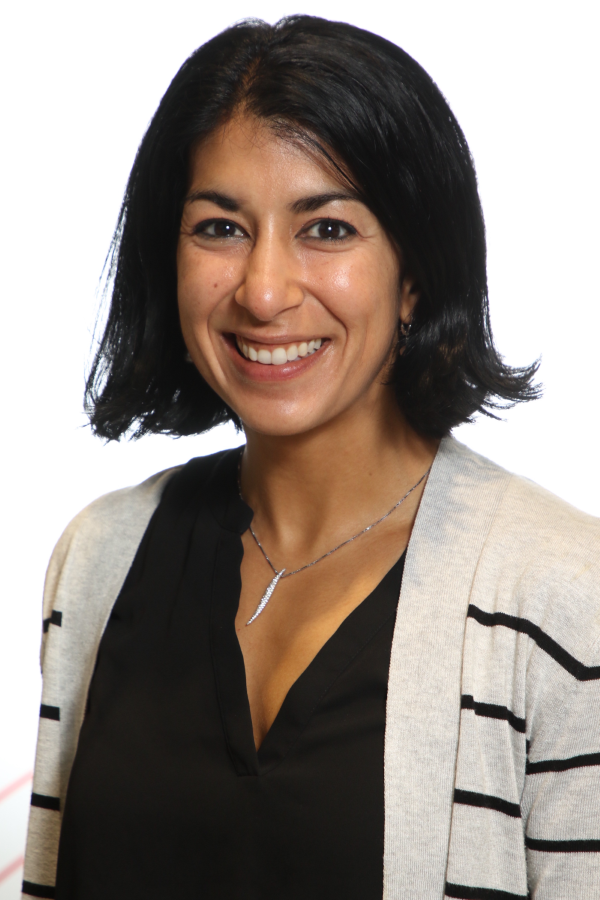Congratulations on your well deserved award, Dr. Vadiveloo! 
Maya Vadiveloo, PhD, RD, Associate Professor of Nutrition and Director of Big Data and Eating Decisions Lab in the Department of Nutrition at the University of Rhode Island, was part of the first cohort of the Advance-K Scholar Career Development Program. This year-long program, sponsored by the Brown Division of Biology and Medicine and Advance RI-CTR, gives one-on-one and group training to highly qualified junior investigators with the goal of submitting a successful NIH K or equivalent proposal by the conclusion of the program.
The Study: Development of personalized healthy food incentives to improve diet and cardiovascular risk
Dr. Vadiveloo’s study builds upon a previous project funded by the Foundation for Food and Agricultural Research. In this earlier project, she and her team developed a unique platform that partnered with a local grocery store to access loyalty card data. This data allowed them to gain insights into people’s purchasing habits and the nutritional quality of their choices. The platform aimed to nudge consumers toward healthier options by providing personalized incentives. For example, if someone purchased white bread, they might receive a coupon for whole grain bread of the same brand.
One of the most remarkable findings from the earlier study was that individuals who made the most significant improvements in their purchase tended to have higher body mass indexes or family members with related medical conditions. This discovery highlighted the platform’s potential to make a substantial impact on those who needed it most.
While the initial project showed promise in improving people’s purchasing habits, it involved a significant amount of manual labor and data processing. Dr. Vadiveloo’s team saw the potential to enhance this platform by automating aspects of it, using natural language processing to categorize items on receipts into nutritionally meaningful groups and improving the recommendation algorithms.
The NIH-Funded Study
With NIH funding, Dr. Vadiveloo has taken her research to the next level. The current study applies implementation science principles and involves a mixed-methods approach. The research team is working with a higher cardio-metabolic risk population, focusing on individuals with lower incomes. The primary goal is to engage with the community, ensuring that the platform aligns with people’s preferences and needs.
As part of this study, the refined Smart Cart 2.0 app will be tested in a real-world scenario where a small number of users will complete a pre-post study to see how well the app integrates with their usual shopping experience
After further refining the platform, the study’s final phase will be a six-month clinical trial, focusing on a small group of adults with obesity and/or hypertension. Researchers will assess whether the improved platform can lead to actual changes in dietary habits and health outcomes. Factors like blood pressure and blood lipid levels will be monitored to evaluate the impact on health.
The implications of Dr. Vadiveloo’s research extend far beyond the immediate study. The long-term vision involves integrating this platform into various health and wellness initiatives. The goal is that personalized nutrition guidance, with a focus on healthier food choices, could become a standard part of healthcare services, incentivizing individuals to make better dietary decisions and resulting in better health outcomes for them.
Keys to Success
Dr. Vadiveloo’s journey to securing NIH funding was not without its challenges. The process involved months of hard work, grant writing, and waiting for feedback. Initially, the disappointing scores could be disheartening. However, Dr. Vadiveloo emphasizes the importance of processing disappointment and allowing some time for introspection before moving ahead. Taking a step back and seeking feedback can be invaluable in refining the research proposal, she notes.
The Advance-K Scholar program played a crucial role in Dr. Vadiveloo’s success. She shares that it was “so incredibly helpful,” and provided valuable guidance on grant writing, clarification of key concepts and a supportive community of scholars going through similar experiences. Dr. Vadiveloo also credits her team of mentors who have guided her along the way, including primary mentor, Ann Thorndike, MD, MPH (Massachusetts General Hospital, Harvard Medical School); Alison Tovar, PhD, MPH (Brown University); Sarah Feldstein Ewing, PhD (formerly of the University of Rhode Island); Carsten Eickhoff, PhD (formerly of Brown University); Ugur Cetintemel (Brown University) and Kim Gans, PhD (University of Connecticut).